Thach Thao
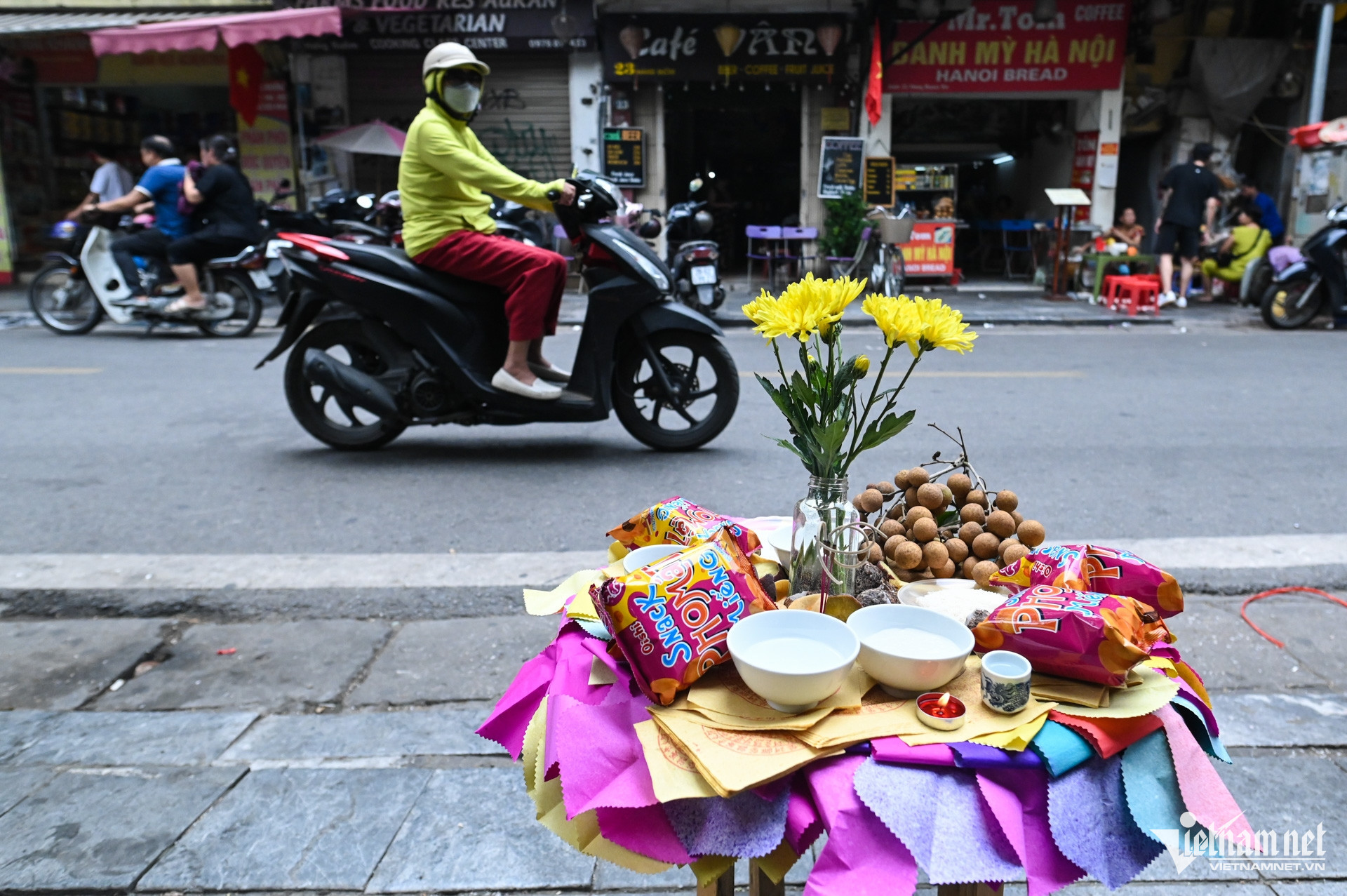
On the eve of this significant day, residents of Hanoi’s Old Quarter arranged offering tables on the sidewalks to carry out their rituals. These offerings typically include symbolic paper items such as clothing, along with rice, salt, fruits, and snacks. Many shop owners believe that in addition to household offerings, performing these rituals at their businesses is essential to show reverence and ensure a prosperous year ahead.
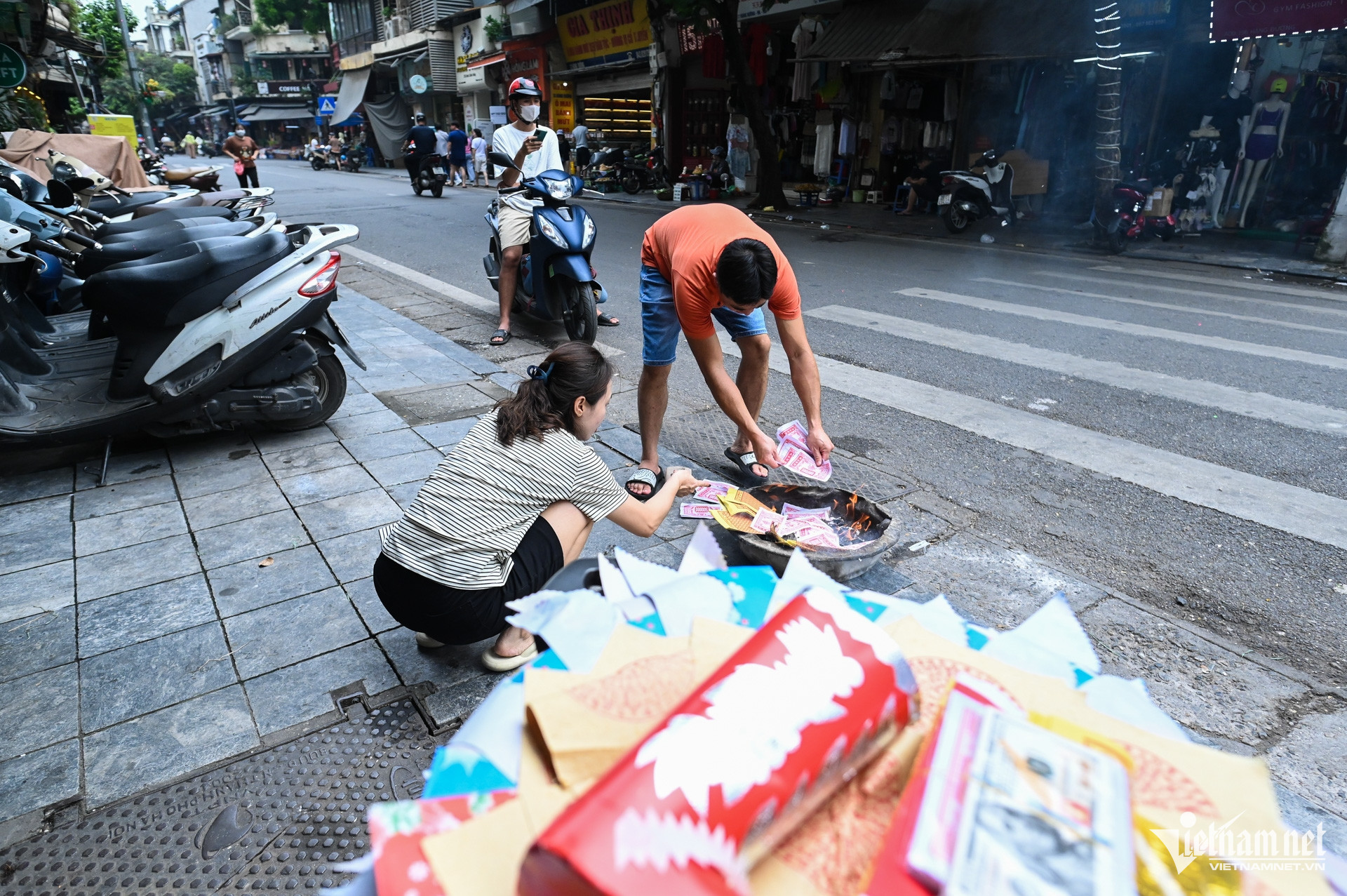
On Hang Ngang Street, a local business owner shared that they had prepared their offerings and joss paper the previous evening. Many families choose to conduct these rituals early, believing that by the afternoon of the 15th, the gates of the underworld close, and spirits return to their realms.

Anna, a tourist, remarked: “I walked about a kilometer from Dong Xuan Market and saw around ten families burning paper money. I assume this is an important day in Vietnamese culture—it’s quite fascinating.”
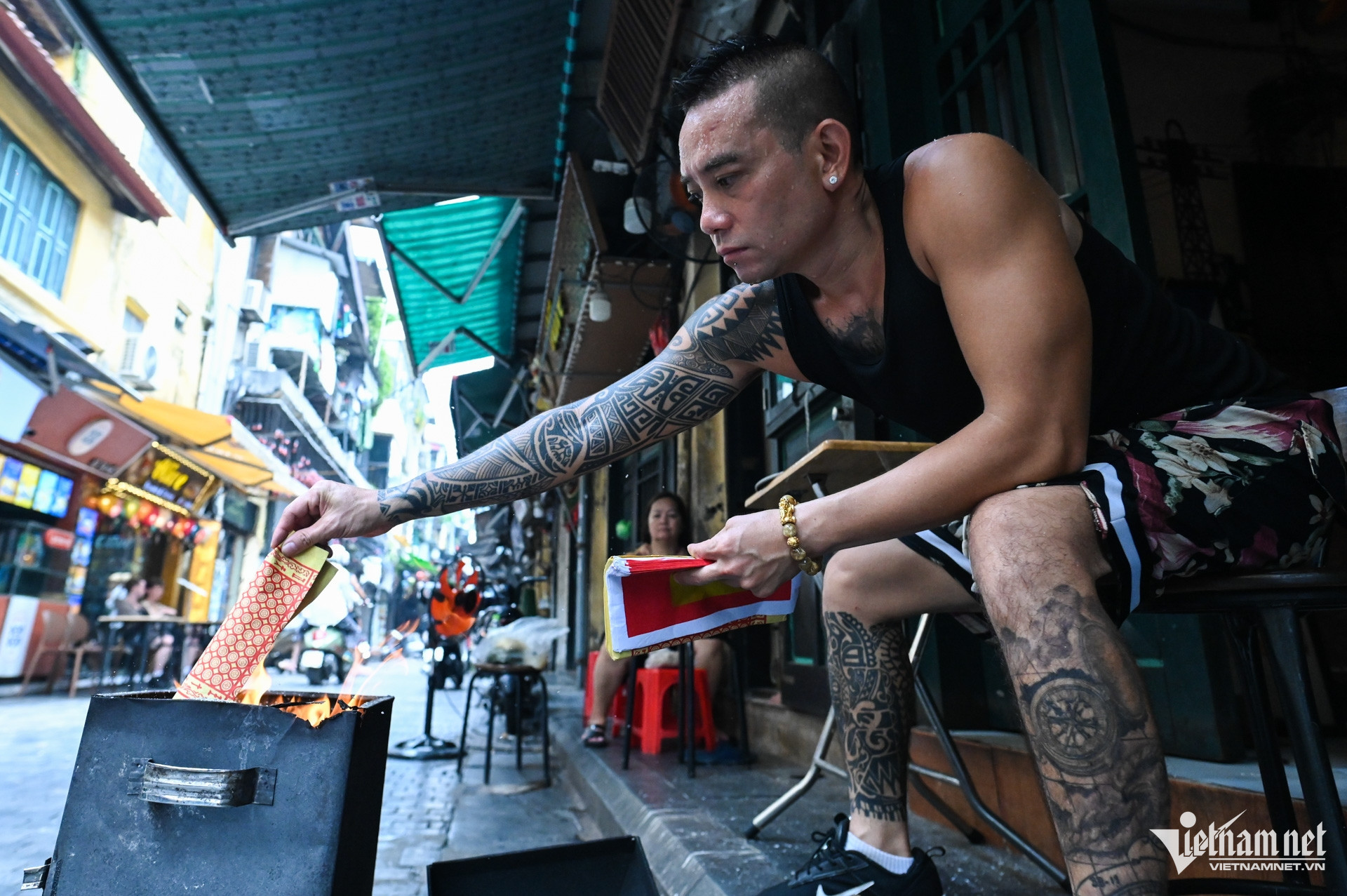
On Ta Hien Street, Ha Manh Long sat in front of his house, burning joss paper after completing his offerings. Long explained that his family has a tradition of performing these rituals early each year to avoid the last-minute rush.
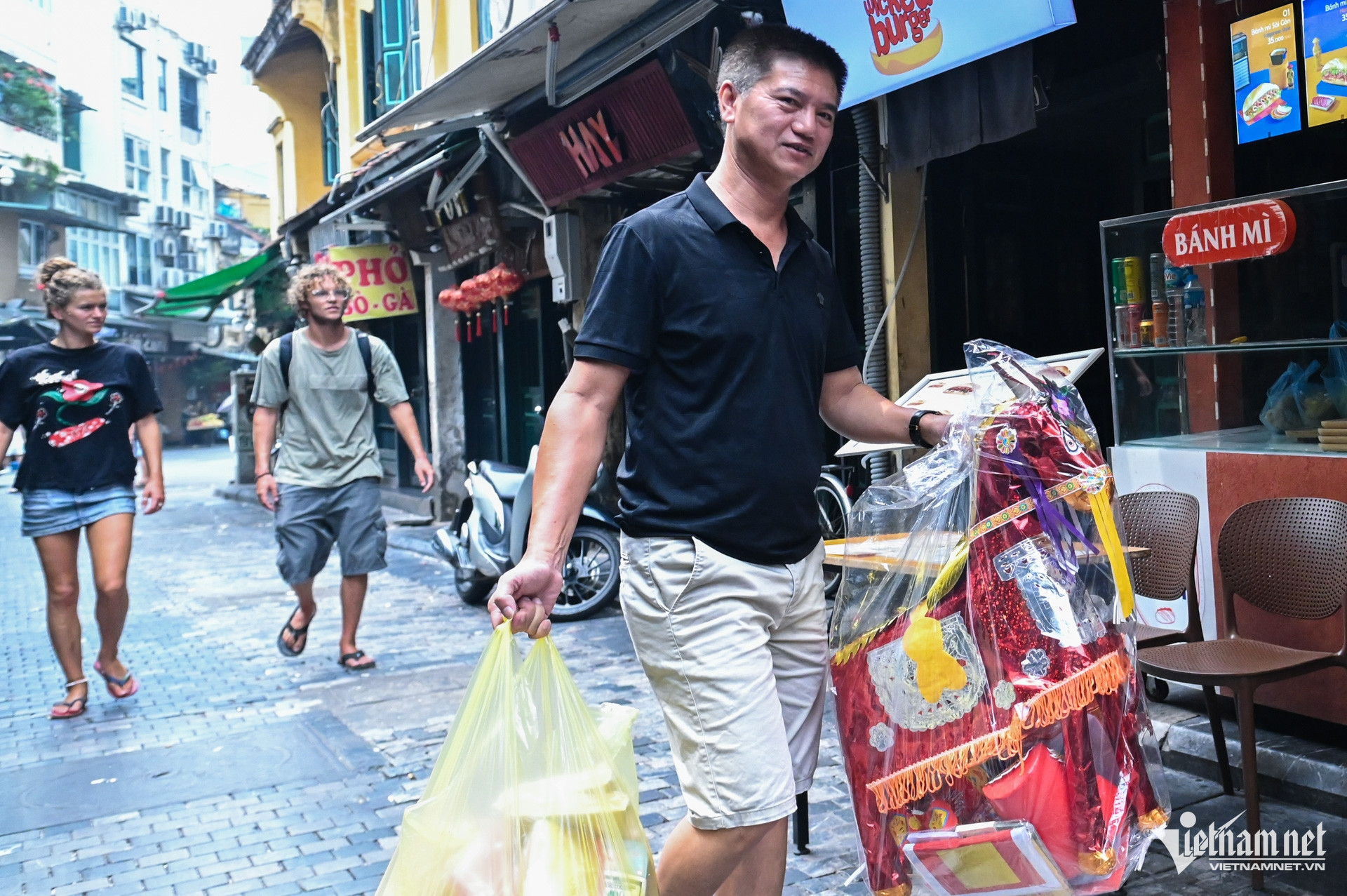
Nearby, Long’s neighbor had just returned from the market, preparing for their afternoon offerings.
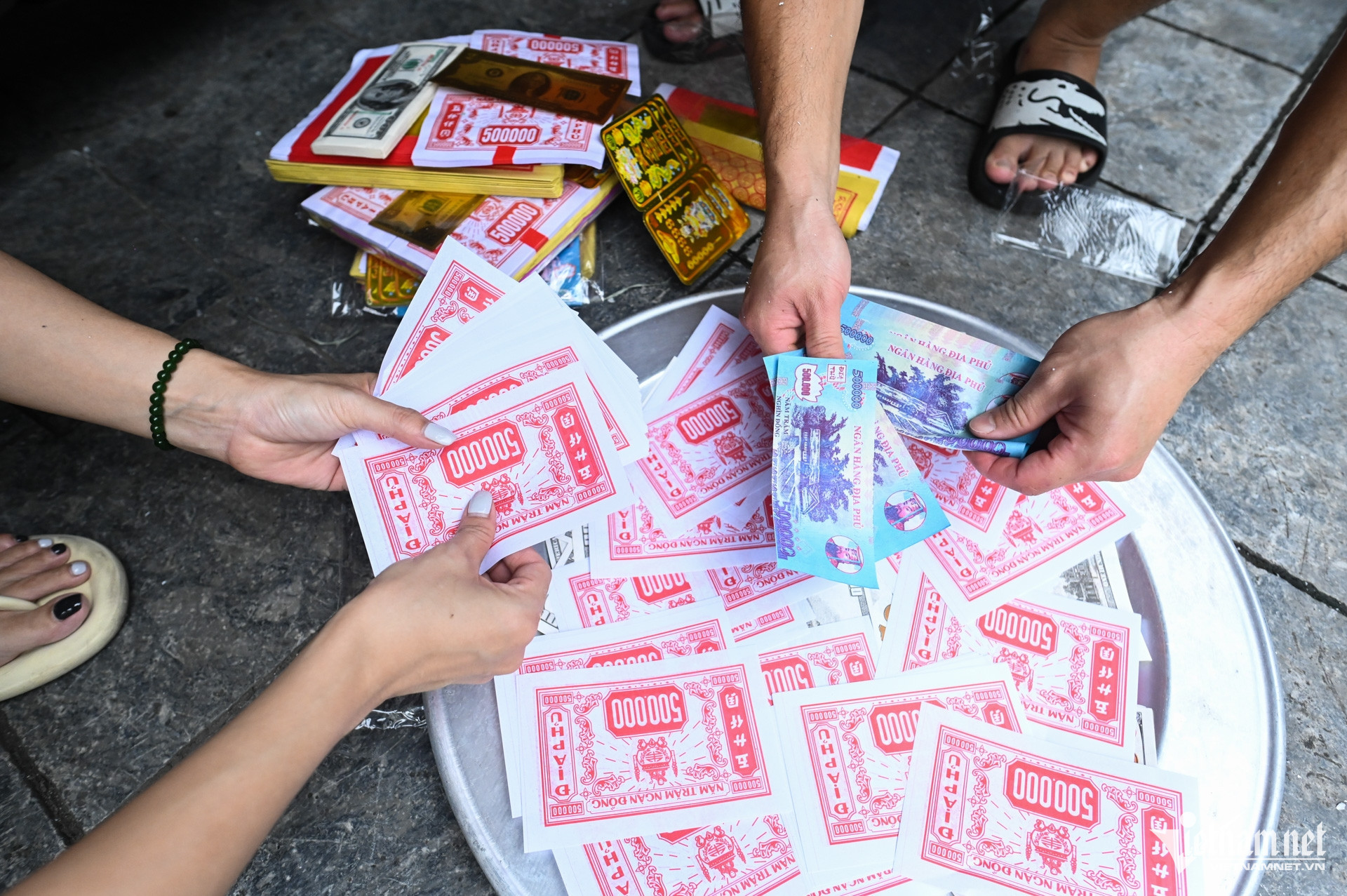
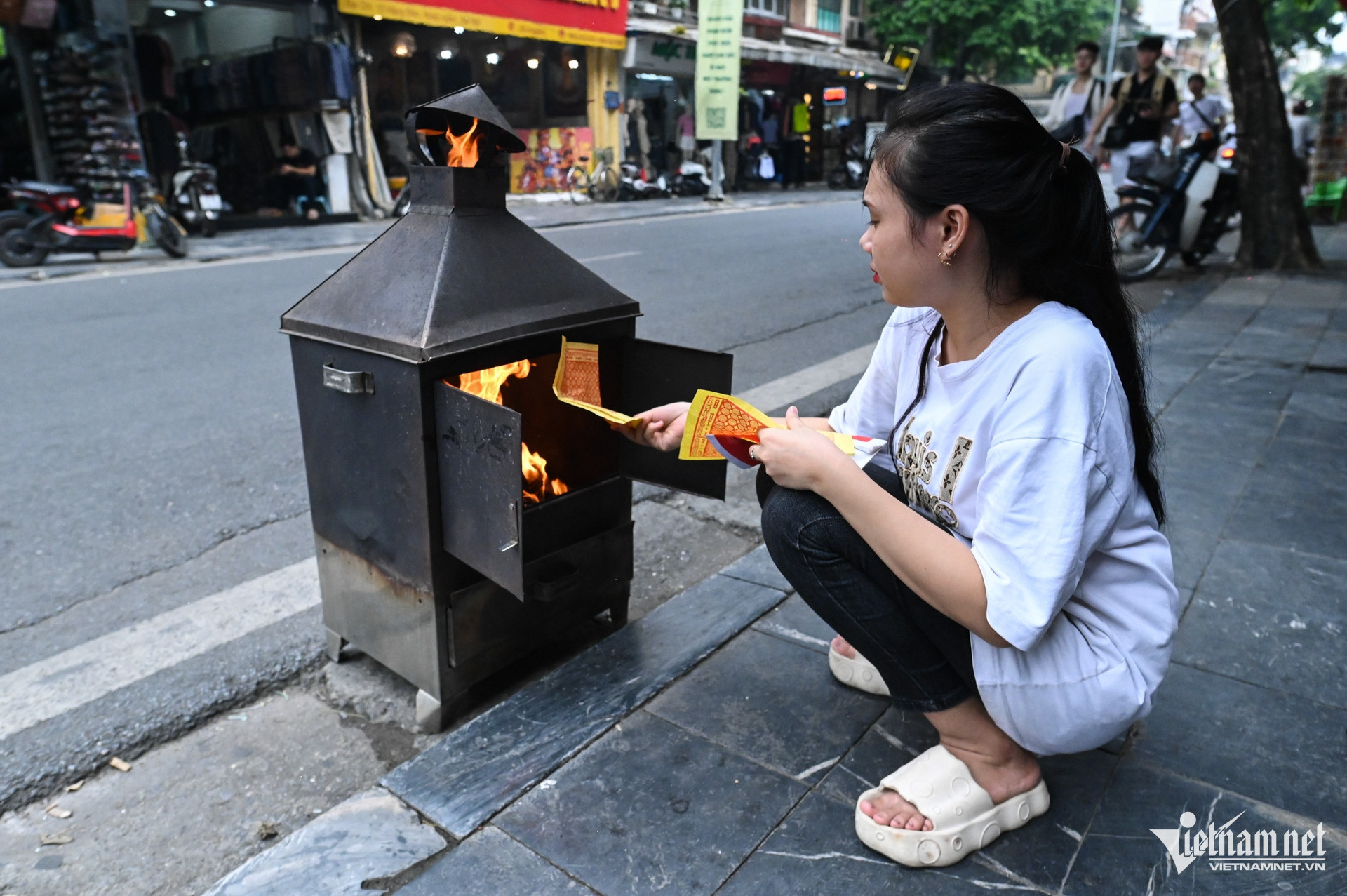 |
 |
To minimize smoke affecting passersby, many families carefully separate the stacks of joss paper before burning. After the burning, they sprinkle rice wine over the ashes, while rice and salt are scattered on the street to feed wandering spirits and dispel bad luck.

One family on Hang Bong Street spent 600,000 VND in an old washing machine drum to use as a joss paper furnace. The homeowner explained that this method prevents excessive smoke, ensures a quick burn, and keeps the ashes contained.
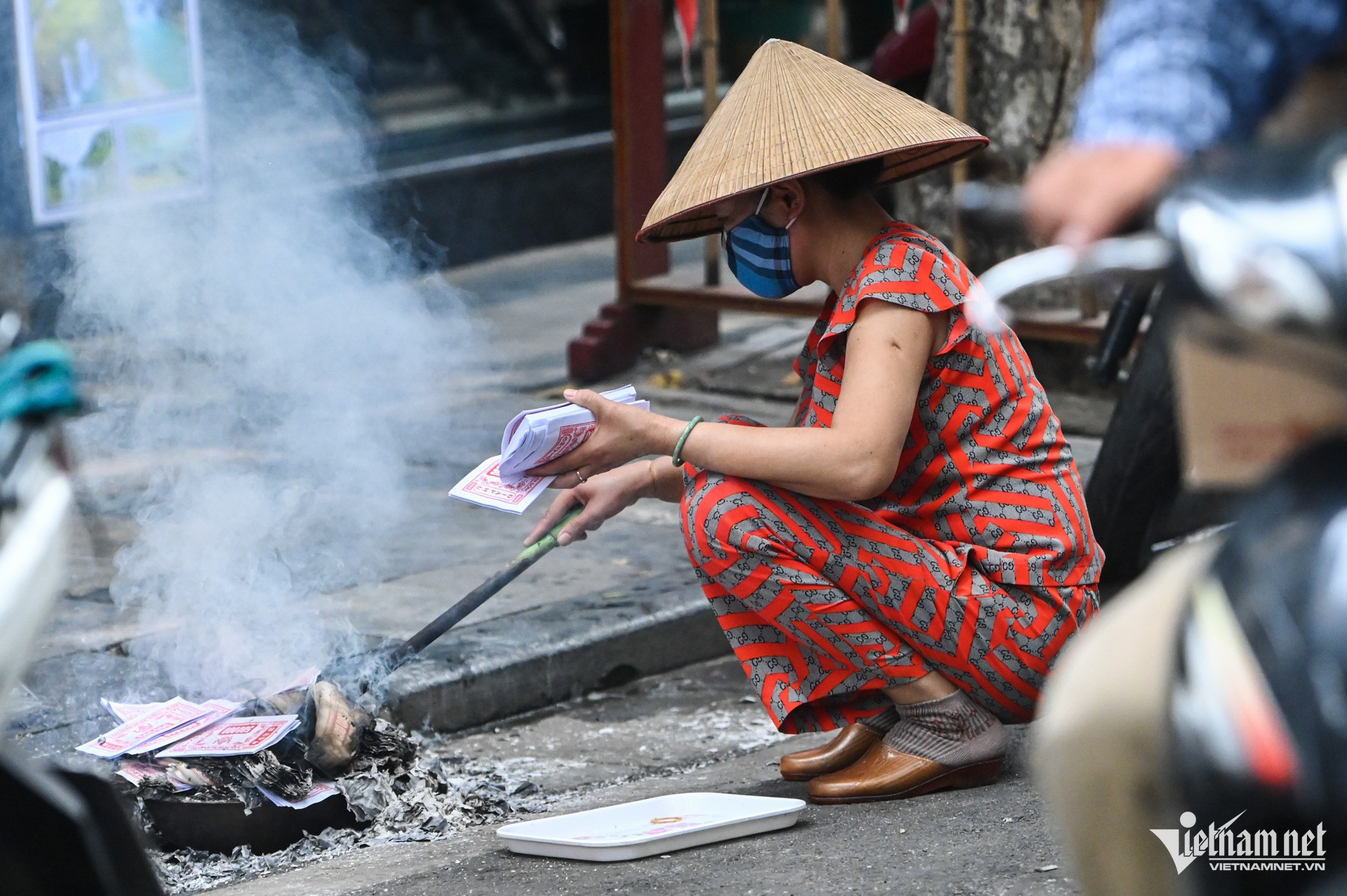
However, despite the precautions, many people continue to burn joss paper directly on the sidewalk, even as the bustling traffic flows around them.